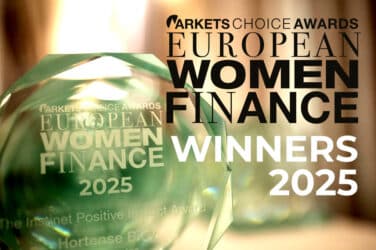As environmental, social, and corporate governance concerns continue to grow, institutional investors and asset managers have found obtaining the necessary financially material disclosures from companies a growing challenge and have started to push towards mandated disclosures.
When State Street Global Advisors polled 300 global institutional investors, it identified that finding financially material data was the most significant challenge for those integrating ESG criteria into their investment process.
“On a systemic level, companies and investors need to agree upon consistent and commonly accepted frameworks for financially material ESG issues,” said Rakhi Kumar, senior managing director, head of ESG investments and asset stewardship at State Street Global Advisors, during the inaugural meeting of the Securities and Exchange Commission’s Investor Advisory Committee.
Without mandated standards in place, more companies have turned towards boilerplate ESG disclosures, which are not terribly useful for investors to differentiate companies, added Jessica Milano, vice president & director of ESG investment research at Calvert Research and Management.
There are voluntary disclosure frameworks that companies have adopted from such organizations as the Edison Electric Institute, The Investor Stewardship Group, and the Sustainability Accounting Standards Board.
“The problem is that these organizations do not benefit from universal participation,” said fellow panelist Jonathan Bailey, Head of ESG Investing, Neuberger Berman. “They are constrained by the voluntary and consensus-building element of any standard-setting exercise. Of course, one of the challenges is that laggards do not get involved.”
The voluntary nature of the disclosure frameworks also makes it difficult for firms to be sure that they can make apples-to-apple comparisons with the provided data.
“SASB codified and released its standards to the industry about a year ago and had approximately 100 companies sign up,” said Jessica Milano, vice president & director of ESG investment research at Calvert Research and Management. “Less than a third of the companies have disclosed using the SASB standard with some sort for third-party assurance. Only a few have disclosed through their 10-Ks or 8-Ks. Most of them are reporting through corporate sustainability reports or other documents that are not assured.”
Institutional investors, such as the California Public Employees’ Retirement System, have received too many false positives from companies that have a good story to tell and had selected to use one of the voluntary standards, according to Anne Simpson, director, board governance and strategy executive office at CalPERS.
“We are entirely persuaded that we need the regulator to step in because information is the lifeblood of the market and if it is being improvised and done in a well-meaning but amateurish fashion, it undermines its value,” she said.
In the meantime, asset managers and institutional investors will need to take in multiple ESG data sets and triangulate their results.
Global asset-manager SSAG uses ESG and climate-related data from third-party vendors like S&P Trucost, FTSE, Sustainalytics, MSCI, Vigeo Eiris, and ISS ESG to inform its stewardship as well as included it in its investment offerings and client reporting, according to SSAG’s Kumar.
The firm also internally developed its Responsibility Factor ESG-scoring framework that measures the performance of a business’ operation and governance as it relates to financial material ESG issues facing a company’s industry.
“We launched it in April 2019, and it’s being integrated along with other ESG data across the firm,” she added.




